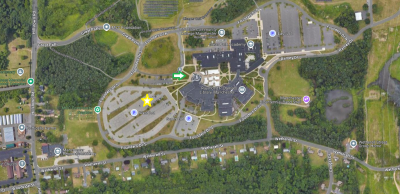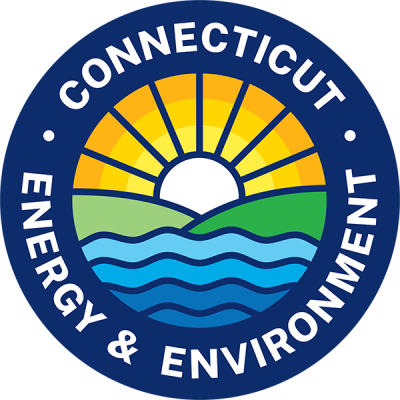Sponsored by
Gold and Presenting Sponsor of the World Trails Film Festival
⇒ Connecticut Outdoor Recreation Alliance (CORA)
Bronze Sponsors
⇒ Bike Walk Connecticut
⇒ Connecticut Forest and Parks
⇒ Farmington Canal Rail to Trail Association
⇒ Farmington Valley Trails Council
⇒ Friends of Mono Pond State Park
⇒ Hop River Trail Alliance
⇒ Northeast Mountain Biking Association (NEMBA)
⇒ Shoreline Greenway Trail
Silver Sponsors
⇒ Barton & Loguidice
⇒ Summit Adaptive Sports with Oxford High School Youth Conservation Corps
Friends of Greenways
⇒ Naugatuck Valley Council of Governments
Special Thanks
⇒ Northwest Hills Council of Governments
⇒ UConn CT Trails Program (UConn Extension, UConn CLEAR)
⇒ Connecticut Department of Transportation
World Trails Film Festival
The World Trails Film Festival is presented by Connecticut Outdoor Recreation Alliance in cooperation with the CT Greenways Council Trails Symposium and made possible by REI.
Friday, October 3, 2025. 6:00pm, Doors open at 5:45
Parkade Theater, 416 Middle Turnpike W, Manchester CT
More than just adrenaline-packed adventure films, the festival features powerful stories exploring nature, environmental issues, adaptive recreation, mental health, community, urban trails, trail-building, and the voices of women and minority groups on the trail. Inspiring, thought-provoking, and action-packed—these films celebrate the many ways trails connect us all.
World Trails Film Festival 2024 Preview $17.85. per ticket
Don't wait, tickets are limited! Tickets only available online.
Film Festival Lineup
Seeking Judhuri, 12 mins.
Ahmed embarks on the Lebanon Mountain Trail with his father on a journey of healing, understanding, and connection.
Faith in the Future, 9 mins.
Mario Mendoza, Jr. confronts what climate change means to him not just as a professional athlete, but as a coach, pastor, and father.
Mountains to Sea Greenway, 8 mins.
This short film takes you through the Mountains to Sea Greenway in Taiwan. The 177 km long-distance trail connects the Taiwan Strait to Mt. Jade, the highest peak in Northeast Asia. Composed of inner sea trail, canal trail, tribal trail, and sacred mountain trail, each section leads you to the essence of Taiwan.
Sinai Trail, 8 mins.
Founded in 2015 by a collective of three Bedouin tribes, the nearly 250km Sinai Trail is Egypt’s first long-distance walking path.
Wood Hood, 16 mins.
Wood Hood tells the story of DeVaughn, a teenager from New York City who joins a group of young men of color on a camping trip with Camping to Connect.
Dirt Relations, 38 mins.
A group of passionate Native American cyclists attempt to bring the sport of mountain biking to the Navajo Nation, where no bike shops exist.
CT Trail Symposium Agenda
Subject to Change
| 9:00am | Registration, Networking, Visit Tables, Continental Breakfast |
| 9:25am Auditorium |
Welcome and Overview of the Day Bruce Donald, CT Greenways Council Chair and Tri-State Coordinator for the East Coast Greenway |
| 9:35am Auditorium |
Keynote: Influencing the CT Trail Community Mosi Moses |
| 10:15am Auditorium |
Inter-Agency Cooperation in CT Panel Moderated by Bruce Donald, Southern New England Manager, East Coast Greenway Alliance Anna Bergeron, Supervising Planner, Active Transportation Unit, Connecticut Department of Transportation Kim Bradley, CT Trails and Greenways Program Coordinator, Connecticut Department of Energy & Environmental Protection Matt Hart, Executive Director, Capital Region Council of Governments Mark Moriarty, Director of Public Works, City of New Britain |
| 11:00am | Break & refreshments networking and enjoy displays |
| 11:10am | Session 1 (Abstracts) |
| Resources Track 1 C209 |
1. Last but not least- Closing the East Coast Greenway Gap in the Capitol Region Caitlin Palmer, Capitol Region Council of Government, Director of Regional Planning and Development |
| Building Track C210 |
2. Five Dutch Design Principles for Bike Planning Rishabh Mittal, PTP Transportation Planner |
| Accessibility Track Auditorium |
3. "Why We Walk" film Moderated by Paula Burton, CT Outdoor Recreation Alliance (CORA) |
| Data Track C211 |
4. CT Trails Program: What’s New with CT Trail Census and CT Trail Finder Aaron Budris, Environmental Planning Director, Naugatuck Valley Council of Governments Laura Kelly, CT Trails Program Coordinator, UConn CLEAR Nick Harms, Graduate Assistant, UConn Department of Natural Resources and the Environment Emily Wilson, Geospatial Educator, UConn CLEAR and UConn Extension Anita Morzillo, Associate Professor, UConn Department of Natural Resources and the Environment |
| Resource Track 2 C212 |
5. Beyond ADA Requirements, Accessible Shared Use Paths for All CT DOT ADA Engineering Coordination Team (Katie Hedberg) & CT Municipality |
| 12:15pm | Lunch |
| 1:30pm | Session 2 (Abstracts) |
| Resources Track 1 C209 |
1. The Future of Active Transportation in CT Paul Ashworth CTDOT Pedestrian & Bicycle Coordinator Anna Bergeron Supervising Planner Emily Baranowski, Project Lead |
| Building Track C210 |
2. Building Trails, Building Community Paula Burton |
| Accessibility Track Auditorium |
3. Accessibility for EveryBody Joseph Lanier, Youth Conservation Corps Coordinator & Science Instructor at Oxford High School Karen Cook, Summit Adaptive |
| Data Track C211 |
4. Making the Outdoors Social (Media) Mick Ferraro, Reg Director, New England Mountain Bike Association |
| Resource Track 2 C212 |
5. Building Out an Urban Greenway Network: Opportunities, Challenges and Lessons from New Haven Giovanni Zinn, PE, City Engineer, City of New Haven Rishabh Mittal, PTP Transportation Planner Doreen Abubakar, Newhallville resident & community activist. Community Placemaking & Engagement Network (CPEN) Doug Hausladen, New Haven Coalition for Active Transportation & Shoreline Greenway Trail Moderator: Aaron Goode, New Haven Friends of the Farmington Canal Greenway |
| 2:20pm | Session 3 (Abstracts) |
| Resources Track 1 C209 |
1. The Hop River Trail Alliance – A grass-roots collaborative model for coordinating the State, towns, and volunteers in the management and promotion of multi-town linear trail system John Hankins, Vice President, Hop River Trail Alliance |
| Building Track C210 |
2. Bridge Building with a Standard Plan Across Towns Tom Olson, Tri Town Trail Vice President-Groton |
| Accessibility Track Auditorium |
3. Accessibility Speed Dating: Ways to Think About and Actualize Accessibility for People with Disabilities Elanah Sherman, Board Member/Accessibility Coordinator, Avalonia Land Conservancy |
| Data Track C211 |
4. Pathways to Public Health: Rail Trail Use in CT Joe Milone, EdD, Associate Professor, Southern CT State University Sara Newman Carroll, PhD Associate Professor, Eastern CT State University Deb Risisky, PhD, Professor, Southern CT State University |
| Resources Track 2 C212 |
5. Ecological Design for Trail Projects Christian Nakarado, Assistant Professor of Ecological Design, Wesleyan University Clare Cain, CFPA Trails Director |
| 3:15pm Auditorium |
Wrap-up Group impressions, ideas for next year, thank you and evaluations Kimberly Bradley, CT DEEP Trails and Greenways Coordinator |
| 3:30pm | Optional Trail Walk on Cheney Trail Led by John Bolduc. The Cheney Trail is a great example of how a trail can connect a community. Anyone interested should meet in front of the Urban Lodge Brewery, 47 Purnell Place, Manchester, CT. |
| 4:30pm | Networking Social Hour at Urban Lodge Brewery, 416 Middle Turnpike W, Manchester, CT Open to all! Attendees should be prepared to purchase their own refreshments. |
| 5:45pm | World Trails Film Festival additional ticket required |
Session 1, Resources 1. Last but not least- Closing the East Coast Greenway Gap in the Capitol Region
Caitlin Palmer, Capitol Region Council of Government, Director of Regional Planning and Development
Abstract
Focusing on creating an off-road connection through Bloomfield, Hartford, and East Hartford, the East Coast Greenway Gap Closure Study identified a new alignment to meet regional and local needs. There is a reason for the gap: off-road options are limited, complicated, and potentially expensive in the highly developed Capitol Region. Additionally, topography, rivers, and limited open space have hindered the creation of a clear path connecting the Farmington Canal Heritage Trail to the Charter Oak Greenway Trail. In this session, we will review the process to identify a route, connect with the community and key stakeholders, and establish a fundable, constructible route. We will highlight both the technical, quantitative analysis required, and the qualitative, wisdom-of-the-crowds effort undertaken during this study. Takeaways will be helpful in other communities trying to identify and build the final connections in a comprehensive, statewide off-road bicycle network.
Session 1, Building. Five Dutch Design Principles for Bike Planning
Rishabh Mittal, PTP Transportation Planner
Abstract
The key to unlocking cycling’s full potential lies in well-designed bike infrastructure. The Netherlands has built an exemplary bicycle infrastructure over the last 45 years. In this time, the Dutch have developed five principles that guide their planning and design process. This presentation is an introduction and a brief overview of these five principles.
Session 1, Accessibility. “Why We Walk” film
Moderated by Paula Burton, CT Outdoor Recreation Alliance (CORA)
Abstract
"Why We Walk" is a very thoughtful and interesting look into why and how a few friends started hiking.
Session 1, Data. CT Trails Program: What’s New with CT Trail Census and CT Trail Finder
Aaron Budris, Environmental Planning Director, Naugatuck Valley Council of Governments
Laura Kelly, CT Trails Program Coordinator, UConn CLEAR
Nick Harms, Graduate Assistant, UConn Department of Natural Resources and the Environment
Emily Wilson, Geospatial Educator, UConn CLEAR and UConn Extension
Anita Morzillo, Associate Professor, UConn Department of Natural Resources and the Environment
Abstract
The session will cover new and exciting updates to CT Trail Census and CT Trail Finder, both part of the UConn CT Trails Program. The CT Trail Census is a statewide data collection program that has been collecting trail use counts across CT since 2016. Along with presenting counts on the interactive Data Dashboard, CT Trail Census assists organizations with their own counters, and is partnering with several to share their counts. We will discuss benefits of these partnerships along with a summary of CT Trail Census Survey results. Ongoing research also will be presented, with focus on comparing CT Trail Census use counts to crowdsource data sources.
CT Trail Finder is a free website maintained and populated by the CT Trails Program with the goal of helping trail users find trails around the state. It is also a platform where trail managers can ensure only accurate information is provided. New features include digital badges, trailside services, and other interface improvements. Join us to learn more about the CT Trail Census, CT Trail Finder, ask questions, provide feedback, and learn ways to contribute.
The UConn CT Trails Program is supported by CT DEEP and the CT Greenways Council.
Session 1, Resources 2. Beyond ADA Requirements, Accessible Shared Use Paths for All
CTDOT ADA Engineering Coordination Team (Katie Hedberg) & CT Municipality
Abstract
Summary to include the ADA requirements and how accessible design benefits all for access to shared use paths. Will include case studies of sample trails in CT for challenges faced & solutions explored.
Session 2, Resources 1. The Future of Active Transportation in CT
Paul Ashworth CTDOT Pedestrian & Bicycle Coordinator, Anna Bergeron Supervising Planner; Emily Baranowski, Project Lead
Abstract
The future of active transportation in Connecticut is bright. How ConnDOT is preparing for the future through policy, data management and cultural change.
Session 2, Building Trails, Building Community
Paula Burton
Abstract
A single track connection going north /south through eastern CT for bike packing - Could this be a reality? Camping, accessing trails already in use, signage, economic benefits and how to build a community around a long distance trail.
Session 2, Accessibility. Accessibility4EveryBody
Joseph Lanier, Youth Conservation Corps Coordinator & Science Instructor at Oxford High School
Karen Cook, Summit Adaptive
Abstract
The “Access 4 EverBODY” started during the Covid-19 lockdowns. The YCC recognized how “everyone” was rediscovering nature, but not EveryBody. Those individuals needing freedom from their homes were not able to experience one of the only safe places at the time being outdoors. We’ve not “moved on” from the pandemic, but have utilized this experience to “move forward”, always being cognizant of how our trail system could and should enable EveryBody to experience nature up close rather than from a distance. The YCC understands nature being one of the few places where everyone is equalized as long as EveryBody has access. We recognize how incorporating adaptive uses onto soil based trails with other users is not found anywhere else in Connecticut. Connecticut being “the land of steady habitats” change takes time, unlike our neighbors in Vermont, New Hampshire and Maine. Who have recognized the economic impact accessibility can have on their local economies. Our approach is seamlessly integrating adaptive uses into the trails without anyone even recognizing it. After completion, we will have over seven miles of rated adaptive trails assimilated into our trail system. “Access 4 EveryBODY” will make us a standout for being a truly inclusive recreational destination.
Session 2, Data. Making the Outdoors Social (Media)
Mick Ferraro, Reg Director, New England Mountain Bike Association
Abstract
Growing your brand and organization by meeting people where they are. How to show the great things your organization is doing in a growing social world.
Session 2, Resources 2. Building Out an Urban Greenway Network: Opportunities, Challenges and Lessons from New Haven
Giovanni Zinn, PE, City Engineer, City of New Haven
Rishabh Mittal, PTP Transportation Planner
Doreen Abubakar, Newhallville resident & community activist. Community Placemaking & Engagement Network (CPEN)
Doug Hausladen, New Haven Coalition for Active Transportation & Shoreline Greenway Trail
Moderator: Aaron Goode, New Haven Friends of the Farmington Canal Greenway
Abstract
This panel will look at how New Haven is attempting to build an interconnected network of urban greenways that serve a wide variety of functions from recreation to commuting to economic development and creative placemaking. What are the unique opportunities and challenges of building greenways in an urban context and what are the optimal strategies for getting robust buy-in from a diverse community of stakeholders in order to create genuine accessbility? Panelists representing the City of New Haven as well as advocates for the Shoreline Greenway Trail, Farmington Canal Heritage Trail, Mill River Trail and West River Greenway will offer unique perspectives on these difficult but important questions.
Session 3, Resources 1. The Hop River Trail Alliance – A grass-roots collaborative model for coordinating the State, towns, and volunteers in the management and promotion of multi-town linear trail system
John Hankins, Vice President, Hop River Trail Alliance
Abstract
The Hop River State Park Trail is a 20-mile linear rail trail system that runs from Willimantic to Manchester, Connecticut. The Hop River Trail Alliance (HRTA) was formed by a group of local trail supporters in 2022 who saw the need for better coordination of the management, maintenance, and promotion of the trail between State and local governments as well as volunteers. In this presentation we will discuss the model that we developed for the organization, which included a board containing a director from the town governments of each of the towns through which the trail passed with professional support from the State Parks division of the Department of Energy and Environmental Protection as well as the Connecticut Greenways Council and the East Coast Greenway Alliance. The arrangement has greatly improved coordination and communication between the towns and the State and has allowed for collaborative projects to move efficiently forward with a consistent approach across the length of the trail. Lessons learned from the efforts of the HRTA may be instructive for similar groups.
Session 3, Building. Bridge Building with a Standard Plan Across Towns
Tom Olson, Tri Town Trail Vice President-Groton
Abstract
Learn how I coordinated building six, 24 foot bridges for the Tri Town Trail and Groton Open Space Association - all using the same plan and core volunteer team, as an example for further expansion of trail improvement.
Session 3, Accessibility. Accessibility Speed Dating: Ways to Think About and Actualize Accessibility for People with Disabilities
Elanah Sherman, Board Member/Accessibility Coordinator, Avalonia Land Conservancy
Abstract
Using the Americans with Disabilities Act (ADA) as a template for discussion, this theoretical workshop will guide participants toward creating greater accessibility for their organizations in terms of physical environment, communication equity, and policy. This workshop is not a primer on how to build an accessible trail, although we will address some of those elements; rather, it is an introduction to how open space entities can develop and embrace a broadly encompassing disability-positive initiative.
Session 3, Data. Pathways to Public Health: Rail Trail Use in CT
Joe Milone, EdD, Associate Professor, Southern CT State University
Sara Newman Carroll, PhD Associate Professor, Eastern CT State University
Deb Risisky, PhD, Professor, Southern CT State University
Abstract
This study explored rail trail users’ perceptions of health and wellness related to rail trail use in Connecticut. Survey data captured reasons for trail use, activities (e.g., exercise, socializing), and how participants feel rail trails impact their health. We received 402 survey responses, collected over three months from 11 rail trails in Connecticut and social media platforms. Participants most commonly used the trails several times a week or month (35%, 23% respectively) during weekday and weekend mornings and afternoons. The top three activities on the trail were walking, biking, and dog walking (72%, 49%, and 31%). The study also explored barriers to trail use and found crowded trails, trail conditions, safety concerns, and limited parking were the most common. Participants noted health and well-being – including exercise, health and fitness, convenience, no cost, and feeling closer to nature as reasons they used the trail. These findings highlight the potential of rail trails to promote health through physical activity and social engagement, and emphasize demographic disparities in trail use (86% of survey participants were White). This study aims to understand access and inclusivity, leading to the development of public health initiatives and creating healthier communities through outdoor recreation opportunities.
Session 3, Resources 2. Ecological Design for Trail Projects
Christian Nakarado, Assistant Professor of Ecological Design, Wesleyan University
Clare Cain, CFPA Trails Director
Abstract
The Connecticut Forest & Park Association (CFPA) and Wesleyan University’s Wood Studio course teamed up on two exciting trail projects. Clare and Christian will highlight how these projects came to life, the design process and site analysis the students went through for each project, and how these enhancements deepen the trails experience.
Come with us as we explore the deeper connections between trail structures and the surrounding environment, the tension between “man-made” and “natural” and learn about how architectural and indigenous design concepts can co-exist.
Parking
Parking for the CT Trail Symposium will be in the West Parking Lot of Manchester Community College. Once parked follow signage for the Auditorium to the western entrance of the college.







